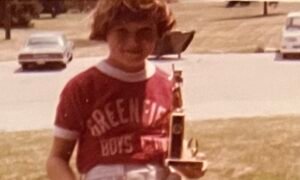The 2011 Heartland Film Festival was, as always, a decadent, moving experience. From the Awards Ceremony Gala to filmmaker Q&As to gluttonous popcorn-eating, I walked away a different person. While I was in Indy, I met producers, directors, performers, advocates, philanthropists, movie buffs, and concessions workers. I reunited with old friends, made new friends, laughed and cried with strangers.
And I saw 28 films.
Yes, it was a bit indulgent.
But as an artist, I’m committed to supporting the arts. And good art makes me better. It makes us all better.
The movie that was seared into my soul last week was a documentary titled “Fambul Tok.” Krio for “Family Talk,” Fambul Tok is a film about a grass-roots, community-based program of forgiveness and reconciliation in post-conflict Sierra Leone. The premise of the film — and the organizational mission — rests in the Sierra Leonean notion that “there is no bad bush to throw away a bad child.” Every person matters. Everyone counts. Everyone contributes. Forgiveness is the first step.
And isn’t forgiveness something we can all embrace?
Our Western beliefs tend to lean toward “justice” and “punishment.” And yet, watching these beautiful stories unfold, it was evident that human hearts — even the ones most woefully wounded — are more than capable of forgiving, embracing, and reconciling with those who have committed the gravest of offenses.
As I’ve stated before, I’m a huge fan of the Charter for Compassion. In this continued spirit of promoting the Golden Rule above and beyond our desire for revenge and “rightness,” Fambul Tok exemplifies the capacity we human beings have for unconditional love.
And at the end of the day — when we are able to strip away our dependence on material goods, on shiny new automobiles and fancy houses, when treating our friends and neighbors with dignity and respect is more important than a new pair of shoes, when we are able to recognize that our human hearts are all fragile and strong and breakable and repairable — isn’t love all that truly matters?
I choose to live in that world. Let’s all choose to live there.





3 Responses
Wow, and BIG WOW! Thanks for saying it in such special words! Thanks for sharing this special time with us also! One day, one of your books will be made into a movie for our festival!
Amen sister.
I will challenge you on one thing – your use of the word “Western” where I think “American” is more appropriate. The tendency towards a desire for “justice” and “punishment” is something much more pronounced in American society than say, for example, in many European countries and my own country, Canada.
Dawn, I would argue that Foucault would note that the systems of justice and punishment – courts, prisons, etc have very European roots and stem out of the Enlightenment period. No doubt that how those systems have evolved over time might be different but they are very much a construct of Western civilization.